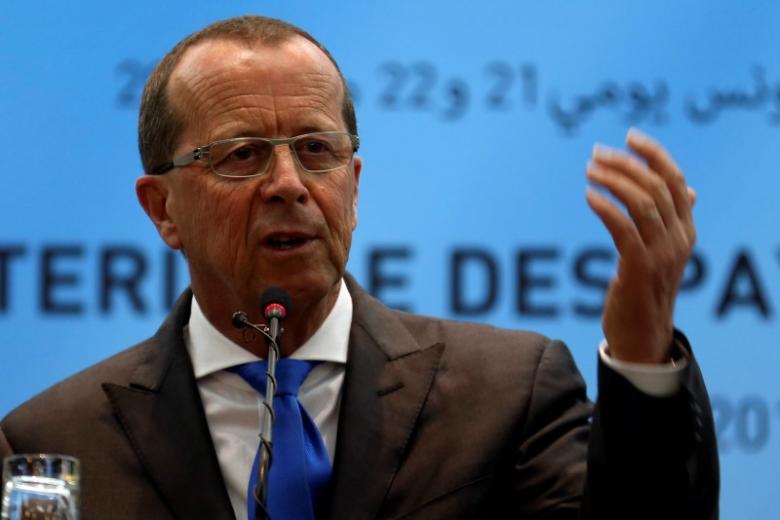Sudan, UN agree to maintain Libya’s stability and territorial integrity

April 30, 2017 (KHARTOUM) – The United Nations Special Representative and Head of the U.N. Support Mission in Libya, Martin Kobler, Sunday said Sudan and the UN have agreed on the need to establish a strong government that could maintain Libya’s stability and territorial integrity.
In press statements after his meeting with Sudan’s Foreign Minister Ibrahim Ghandour in Khartoum, Kobler underscored the need to implement the December 2015 Libyan Political Agreement, signed in Skhirat, Morocco, saying “it is the only path to preserve Libya’s territorial integrity”.
They UN envoy pointed out that he relies on the mechanism of Libya’s neighbouring countries to resolve the crisis, saying he wants it to use its own relations to play a constructive role in resolving the Libyan crisis.
Commenting on a UN report that accused Darfur rebel groups of involvement in Libya’s civil war, Kobler said: “the international law is clear and these bodies [armed movements] shouldn’t work outside its territory”.
For his part, Ghandour expressed Sudan’s keenness to maintain Libya’s territorial integrity, pointing that his country, African Union and the Arab League hold identical views regarding ways to achieve security and stability in Libya.
Sudan’s top diplomat pointed that his country “doesn’t want any Libyan party to arm or cooperate with the Darfur rebel movements”, saying some of these movements are now being hosted by some Libyan parties.
“We are keen to achieve unity, security and stability for the benefit of the Libyan people,” he said.
In May 2016, Sudan proposed the establishment of joint forces to monitor the border between Sudan and Libya to fight the Boko Haram group, which is accused of sending fighters to Libya and control the movements of Darfur rebels in the troubled country.
Despite the efforts of the international community, the UN-backed Government of National Accord (GNA) led by Prime Minister Fayez Seraj failed to restore security in Libya. The country is controlled by multiple armed groups, some of which support the GNA government and some others oppose it.
Khartoum has said it is primarily concerned with restoring peace and stability in Libya as a neighbouring country.
Sudan says it supports the Government of National Accord and stresses the need for “the international community to support the legitimate Libyan government.”
Libyan government complains of receiving illegal immigrants who come across the Sudanese border, while Khartoum grumbles about the activities of rebel movements in Darfur on the border with Libya.
In November 2013, Sudan and Libya had signed an agreement to deployed joint forces to secure the border, stop infiltration of illegal immigrants. But the lack of stability in the north African nation prevents its implementation.
The Libyan prime minister was expected to visit Khartoum last March but he cancelled his trip after due to internal troubles.
(ST)
